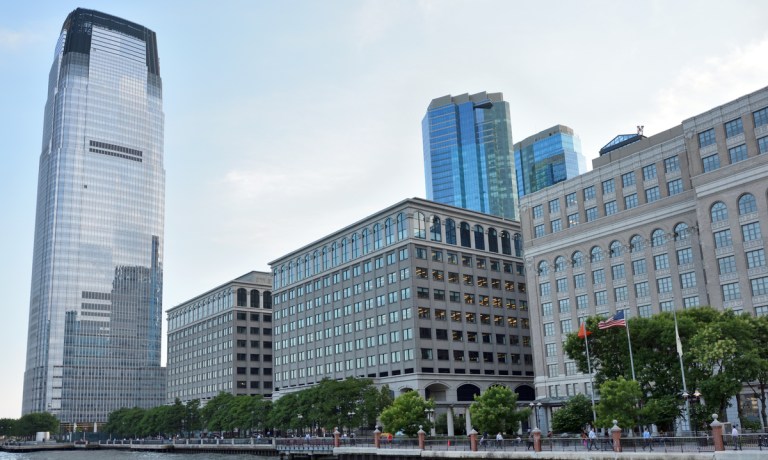Goldman’s GreenSky Sale Shows Building a Consumer Lending Business Is Easier Said Than Done

There’s the ambition, and then there’s the reality.
For Goldman Sachs, the retreat from consumer-focused, Main Street-financial services continues — evidence of just how bumpy a road can be in building out new business lines that promised to digitize and modernize lending and payments.
The latest example is the announcement last week that the company had struck a deal to sell the GreenSky platform it had acquired just over two years ago.
As PYMNTS reported, Goldman said it would sell GreenSky, and its loans, to a consortium of institutional investors led by global investment firm Sixth Street.
The transaction, according to the announcement last week, will close next quarter.
There will be more details and commentary on Goldman’s earnings call, slated for Tuesday (Oct. 17) morning. In the words of CEO David Solomon, Goldman has decided to spend time “narrowing” its focus, with a pivot toward banking and wealth management.
Write-Downs, Quarter by Quarter
GreenSky’s own purview has been in retail, health care, home improvement loans and buy now, pay later (BNPL), in a sector where projects might be classified as among the biggest of big ticket items. GreenSky’s site notes that it offers credit limits of up to $65,000.
Back in 2021, when Goldman bought GreenSky, it agreed to so in a deal that was worth $2.2 billion; the acquisition was consummated last year for $1.7 billion. More recently, there have been indications of further valuation “hits,” as shown in earnings. In the most recent quarter, and as detailed in company presentation materials, Goldman took a $504 million impairment charge on the Consumer Platforms business, which includes GreenSky.
For the third quarter that’s on the docket for Tuesday, the firm anticipates further charges, to the tune of 19 cents a share, related specifically to the GreenSky sale.
The Wall Street Journal reported Monday (Oct. 16) that some employees at the white-shoe Wall Street fixture have been dissatisfied with Goldman’s efforts to carve out a presence in consumer credit cards and lending.
As the Journal reported, “some senior executives at Goldman want out of what remains of consumer lending — namely, the Apple credit card and other Apple products, and the General Motors credit card, according to people familiar with the matter.”
The latest announcement detailed that installment loans were $5 billion in the second quarter, down from $6 billion in the first quarter. Credit card loans were $17 billion, up from $15 billion in the first quarter, and significantly above the $12 billion from a year ago. And as we reported upon covering earnings, net charge-offs (NCO) of $444 million made for an annualized net charge-off rate of 1%.
But drilling down into the consumer business, the NCO ratio was 5.8% for consumer loans, rising from the 4.6% seen in the first quarter.
The sale of GreenSky comes about a month and a half after Goldman Sachs announced a deal to sell its personal finance business to investment adviser Creative Planning. At the beginning of the year, Goldman Sachs stepped back from plans to launch a branded credit card for retail customers. And as we reached out to the company directly in February, we noted that “a spokesperson for the bank downplayed the decision, saying the consumer card was something that was discussed but never a “meaningful” part of the company’s strategy.”
The write-downs, charge-offs and fine-tuning that comes from selling off entire businesses signal that Goldman’s consumer efforts are a work in progress, where the only certainty may be more tweaking ahead.